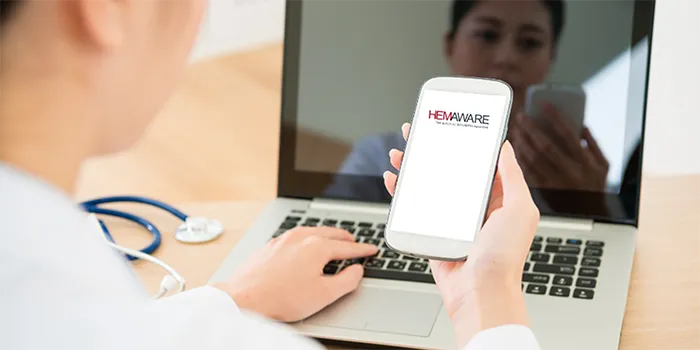When something becomes routine, even something as important as a preventive clotting factor infusion, it can also become easy to forget.
That doesn’t make the consequences any less dangerous, though: Missing scheduled infusions can lead to breakthrough bleeding events and, potentially, severe long-term complications.
While teenagers and young adults who have just begun assuming full responsibility for their own bleeding disorder care are particularly vulnerable, research has shown, their embrace of smartphones and digital technology gives them access to a widening variety of tools designed to simplify staying on top of treatment goals.
These web-based and mobile apps also bridge some of the gap created by the need for regular assessment at hemophilia treatment centers and the difficulty of making the long trips required for many people to reach those centers, according to a 2021 study published in Frontiers in Medicine.
“Mostly, these applications help the patient to keep accurate evidence of their infusions and symptoms and make it easy to communicate with their specialist,” the study says. “With the help of mobile apps, bleeds are more promptly reported and treated.”
Additionally, many apps “offer educational materials, which is a great resource not only for the patients, but for the local caregivers who are in closer contact, but not always well-prepared to deal with this kind of patient.”
Among the most popular apps are:
- Robust Health by ATHN: Developed by the American Thrombosis and Hemostasis Network and its partners, this app enables you to track infusions and bleeds and transmit your treatment information to your hemophilia treatment center. It includes a health goal tracker and patient surveys. Development partners were the Center for Inherited Blood Disorders, Hemophilia and Thrombosis Center - University of Colorado Anschutz Medical Campus, Newark Beth Israel Medical Center - Children’s Hospital of New Jersey and the Indiana Hemophilia Treatment Center. Available on Android and Apple. Cost: Free
- HemMobile: This mobile app, developed by pharmaceutical company Pfizer, helps patients and their families log infusions, record bleeds, and track activity. Available on Android and Apple. Cost: Free
- Hemocraft:Hemocraft from Pfizer builds on the popular video game Minecraft, with a scenario that teaches children with bleeding disorders about the importance of staying prepared and sticking to their treatment plan. Through the “Hemocraft Infusion Adventure,” kids go on an epic quest to defeat a dragon and save a village, while also managing their avatar’s hemophilia — they collect materials to create an infusion kit and visit a “Factor Bar” to monitor their character’s factor stores. Cost: $39.95 (for Minecraft)
- MicroHealth: A web and mobile app, MicroHealth lets users track bleeds and infusions, set up text reminders for treatment, and share their health status with their care team. Available on Android and Apple. Cost: Free
- myPKFiT: Developed by Takeda Pharmaceuticals, this mobile app lets users track bleeds and infusions and allows them to estimate their factor VIII level. To enable the app, users need a personal myPKFiT QR code from their physician. Available on Android and Apple. Cost: Free
- myWAPPS: Developed by Design2Code Inc. as a mobile companion to the Web-Accessible Population Pharmacokinetics Service – Hemophilia, the app lets users track their infusion regimen and view factor concentration levels. Available on Android and Apple. Cost: Free

